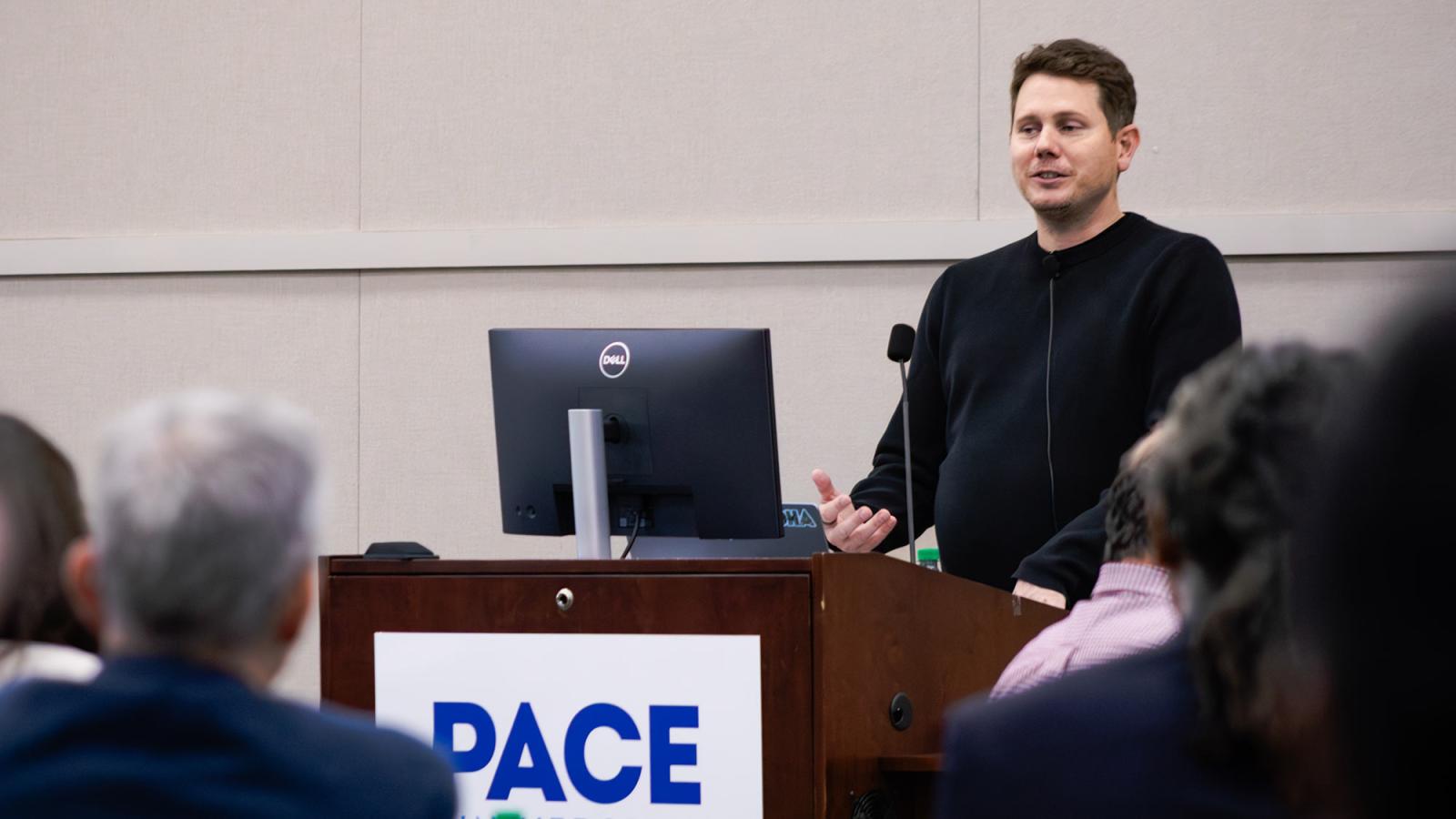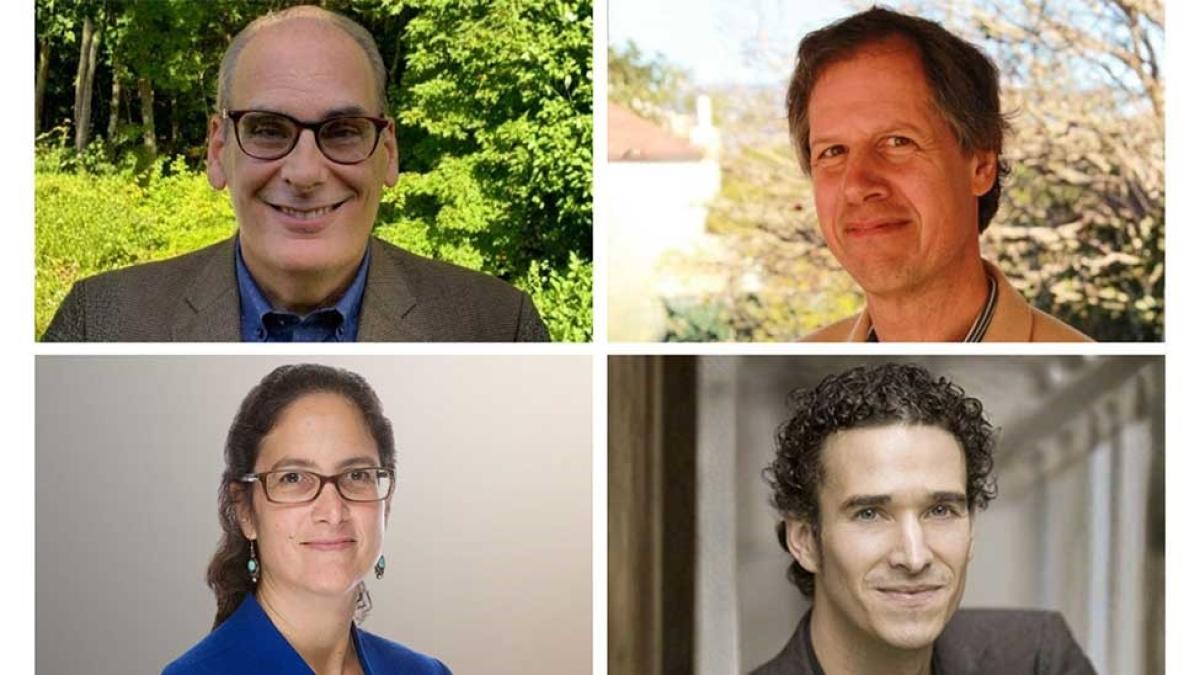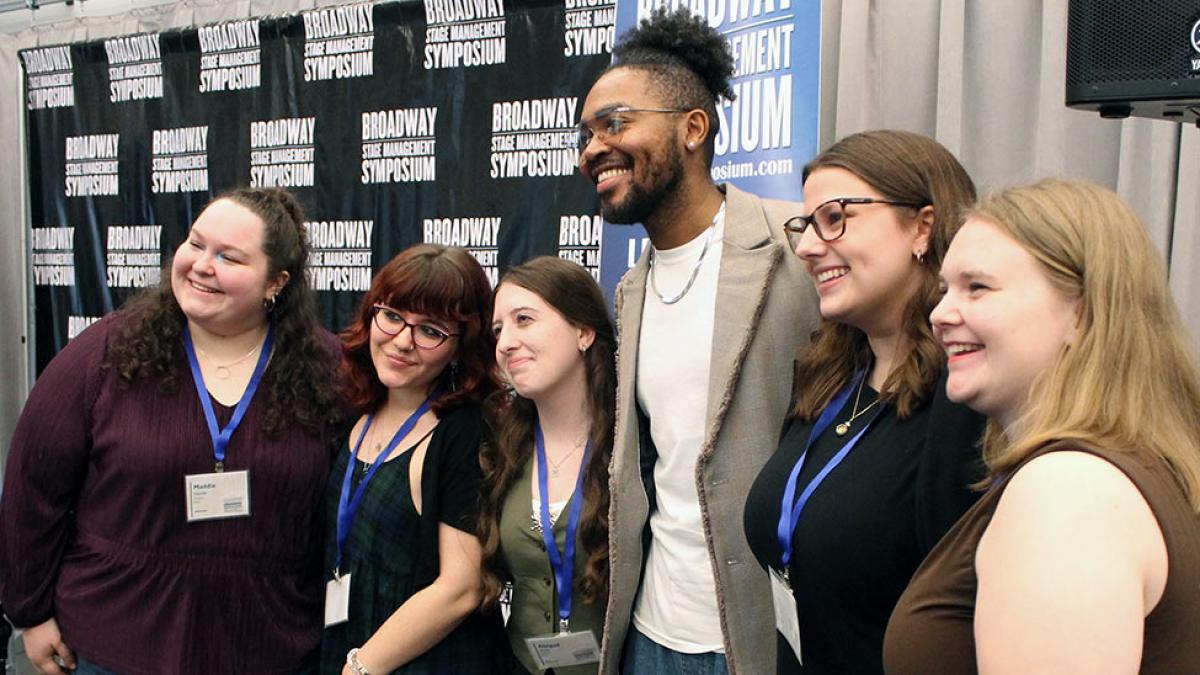The Elisabeth Haub School of Law at Pace University is proud to announce that a distinguished group of environmental law scholars will join the Law School as Haub Visiting Scholars.
Press Release: Google Exec Headlines Pace University’s Inaugural Actionable AI Conference

Educators, industry leaders, and students converge to explore how AI is reshaping higher education, workforce development, and the future of learning
A Google executive spoke to a packed room of business leaders, faculty, and students about the power and importance of harnessing artificial intelligence (AI) in their academic and professional lives.
In speaking at Pace University’s inaugural Actionable AI Conference in Pleasantville on Friday, Charles Elliot, head of industry at Google Cloud, advised attendees that when using AI tools, they should lean into learning, focus on the end-user, and be curious about the application of evolving technologies.
“Think ‘what if,’ ” he told attendees. “Everybody needs to be curious— be a skeptic as well— but be curious. Now is a great time to lean in. I think we’ll see education evolve to adapt to lots of new ideas being brought into the classroom, and that really promotes sophisticated learning. I’m excited about that opportunity.”
Nearly 200 people attended, many eager to learn how to use AI to improve instruction, streamline operations, and prepare for new workforce demands.
During his remarks, Elliot highlighted practical tools already in play: “When it comes to higher education, Google’s goal is to have a tutor for every learner, and a [teaching assistant] for every teacher.”
Throughout the day, attendees explored how AI is being applied across campus and industry — from data analytics and marketing curriculum design, chatbots, and student support systems. Sessions emphasized practical and responsible adoption of AI, spotlighting topics like:
- AI ethics and audits for academia and private industry
- Prompt engineering and search optimization for research
- AI-powered learning management systems that improve retention and engagement
- Workforce development and new career pathways in AI and data
- Custom-built bots for communications, advising, and classroom use
- The future of AI research, including Neurosymbolic and Embodied AI, among other tools.
“We’re seeing tremendous potential in generative AI to streamline operations and support students at scale,” said Beth Gordon, chief information officer at Pace University. “From 24/7 chatbot services to AI-assisted transcript reading and recruitment tools, we’re piloting real applications that are already improving efficiency and access. As tools evolve, affordability and strategy remain key. Our approach is hands-on and intentional—and we’re excited to keep pushing forward.”
The event was supported by sponsors including Carahsoft, D2L, and Google, whose collaboration helped bring hands-on tools and insights directly to attendees.
On the academic side, faculty are also embracing this evolution.
“What began as a small task force has become a vibrant, cross-disciplinary community,” added David Sachs, professor in the Seidenberg School of Computer Science and Information Systems and faculty co-chair of the University’s AI Committee. “We’ve built training programs, redesigned courses, and launched our AI in the Workplace series—all to ensure our students and faculty aren’t just keeping up, but leading. This work is still evolving, and that’s what makes it exciting.”
The event follows a recent visit from the Google Education team, which brought Google Gemini Pop-Up events to Pace University’s campuses in New York City and Pleasantville last week. These sessions gave students hands-on-experience with AI tools designed to support learning, productivity, and academic success — including free access to Google Gemini for Education Plus.
Students responded enthusiastically to both events: “It was eye-opening,” said Emma Seijo, sophomore criminal justice major from Ossining, New York, who attended both the conference and the Gemini Pop-Up. “Seeing how AI could help me stay organized, find new ideas faster, and actually support my learning made it feel a lot less intimidating. I’m walking away feeling more confident and more curious about what else it can do.”
In addition, Pace University now offers a free, four-week AI in the Workplace course designed to help students, faculty, and staff build real-world skills using tools like ChatGPT, Claude, DALL·E 3, and Julius.ai. Participants earn a digital badge while learning to navigate AI tools, tackle real-world challenges, and future-proof their careers.
The day concluded with tabling and networking opportunities, giving participants time to connect across industries, academic disciplines, and student groups. From technical demonstrations to strategic discussions, the event reinforced Pace University’s leadership at the intersection of education, innovation, and ethical AI adoption.
“Today’s conversations make clear that artificial intelligence will play a defining role in how we teach, learn, and lead,” said Jonathan H. Hill, DPS, interim provost and executive vice president for academic affairs at Pace University. “Through events like this and the ongoing work of our faculty and staff, we’re creating a model for what responsible and innovative AI use in higher education can look like.”
About Pace University
Since 1906, Pace University has been transforming the lives of its diverse students—academically, professionally, and socioeconomically. With campuses in New York City and Westchester County, Pace offers bachelor, master, and doctoral degree programs to 13,600 students in its College of Health Professions, Dyson College of Arts and Sciences, Elisabeth Haub School of Law, Lubin School of Business, Sands College of Performing Arts, School of Education, and Seidenberg School of Computer Science and Information Systems.


